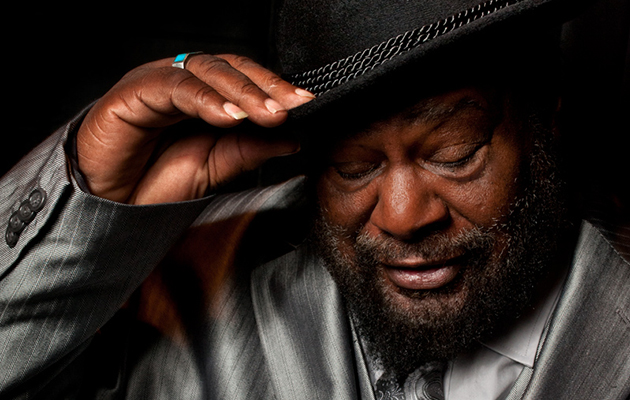Order the latest issue of Uncut online and have it sent to your home – with no delivery charge!
You recently donated the Mothership stage prop to the Smithsonian Institute, too.
It’s part of the Smithsonian Museum dedicated to the African-American experience. They have a lot of memorabilia from the Afro-American music scene, and art. The building opens in 2015, and the Mothership is supposed to be in there, next to the Tuskegee airmen’s plane.
Sun Ra once explained to me his notion of space-jazz as space being the only place that black people could be truly free, that he had never suffered prejudice from any little green alien. Was the P-Funk Mothership mythology something similar?
As a matter of fact, if anything, you’re in charge of your own destiny out there, y’know? We come from the Dog Star, the planet Sirius, they call us the Dogons, so it’s relative – we’re from there, we’re from here – this whole galaxy, this universe, is seeded with different forms of life in different places at different times in different frequencies, different planes. We’re free, but if you ain’t free in your mind, then fuck it.
You started out harmonising in a barbershop.
That’s what we did to subsidise us becoming singers: we all needed to get our hair done, so as soon as we got out of high school we all got us jobs in barbershops. The ‘in’ thing then was straightening hair, pompadours and things, and we did pretty good at that. Little Richard, Little Anthony, they all had the big pomps. Look at some of the pictures of us in those days, we all had Temptation Hair.
Judging by the contestants on TV talent shows, it sounds like the church is still an important incubator of black music. Was that the way in your day?
Yes, and it still is, right now. The church is where you goin’ to find most of the funky music. Most R&B singers take from the church, and now the church is doing it in reverse – you got a lot of churches that sample psychedelic P-Funk grooves the same way as hip-hop. Kirk Franklin went and did “One Nation Under A Groove”, which is weird – within one year, both Kirk Franklin and Ice Cube used “One Nation”! The same song!
You were one of the first black groups to attract a white audience, certainly in the UK. Was it the same in the States?
Yes. In ’68 we came over there, did the Maggot Brain and Free Your Mind… albums; and it happened the same over here: after “Testify”, we started doing the psychedelic stuff, and the audience did change into a white rock audience; but now it’s both, it’s back and forth – it’s like the Grateful Dead for a black and white audience, for old-school black folks. We call it Hoodstock! Playin’ ghetto metal!
You recorded the Free Your Mind… And Your Ass Will Follow album on acid – can you remember anything about it?
Oh my God, no! Just jammin’, and the engineer not wantin’ to put his name on the record! Then after the record came out and everybody sort of liked it around the area, he then got a job over at Motown. That’s when Norman Whitfield started doing “Psychedelic Shack”, “Cloud Nine” and all of that. So then the guy became a superstar, but he wouldn’t put his name on Maggot Brain or a lot of the Free Your Mind… stuff.
Norman Whitfield got “Ball Of Confusion” from you…
Yes, that ‘da-da-da-da-dadl-um-da’, that was a typical P-Funk intro to the stage. We got used to him being in the club, the 20 Grand, listening to us. Norman would come down to the 20 Grand and have his tape recorder, and he’d cop lines for “Runaway Child”, “Cloud Nine”, and “Ball Of Confusion” – that was our theme song, our stage song. Melvin [Franklin, Temptations’ bass singer] called us up, said, ‘Hey man, y’know that vamp you do, I just want to let you know, ’fore y’all hear from someone else, Norman copped that thing and dubbed us in on it this morning.’ We didn’t care, we was just playing hours and hours of music. We didn’t want to take it pop, ’cos we was doing what wasn’t going to be right for 15 years. We did a record, Osmium [cover below], that was way off of line for a black group; it was way off of line for a white group, we did all kind of styles on it – country, bagpipes… it was like a Beatles record!



